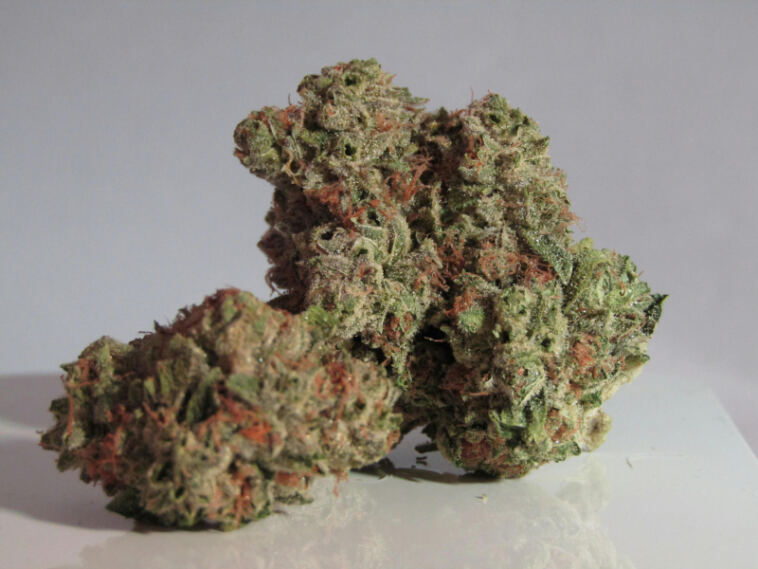- Like
- SHARE
- Digg
- Del
- Tumblr
- VKontakte
- Flattr
- Buffer
- Love This
- Save
- Odnoklassniki
- Meneame
- Blogger
- Amazon
- Yahoo Mail
- Gmail
- AOL
- Newsvine
- HackerNews
- Evernote
- MySpace
- Mail.ru
- Viadeo
- Line
- Comments
- Yummly
- SMS
- Viber
- Telegram
- JOIN
- Skype
- Facebook Messenger
- Kakao
- LiveJournal
- Yammer
- Edgar
- Fintel
- Mix
- Instapaper
- Copy Link
In a world where stress and anxiety are all too common, many people are turning to unconventional methods to find relief. One such method that has gained popularity in recent years is the use of marijuana to combat depression. But can this controversial plant truly be the answer to easing the burden of mental health struggles? Let’s delve into the truth behind the relationship between marijuana and depression.
The Potential Benefits of Marijuana on Depressive Symptoms
Some studies suggest that marijuana may have potential benefits on depressive symptoms. While more research is needed to fully understand the effects, there are some observations that point to the possible positive impact of marijuana on individuals struggling with depression.
One potential benefit of marijuana on depressive symptoms is its ability to act as a mood stabilizer. Some users report feeling a sense of calm and relaxation after consuming marijuana, which can help alleviate symptoms of depression. Additionally, certain compounds in marijuana may interact with neurotransmitters in the brain, potentially influencing mood regulation.
It’s important to note that while some individuals may experience relief from depressive symptoms by using marijuana, it is not a one-size-fits-all solution. Factors such as dosage, strain, and individual differences can all play a role in how marijuana affects mental health. As always, it’s crucial to consult with a healthcare provider before incorporating marijuana into a treatment plan for depression.
The Science Behind Marijuanas Effects on Mental Health
Research on the effects of marijuana on mental health has been a topic of interest for many years. Some studies suggest that marijuana can help combat depression, while others raise concerns about its potential negative impact on mental well-being. Understanding the science behind marijuana’s effects on mental health is crucial in making informed decisions about its use.
One way in which marijuana may help combat depression is through its interaction with the endocannabinoid system in the brain. This system plays a key role in regulating mood, stress, and emotions. The cannabinoids found in marijuana, such as THC and CBD, can bind to receptors in the brain that are involved in these processes. By modulating these receptors, marijuana may have the potential to alleviate symptoms of depression.
On the other hand, some studies suggest that long-term use of marijuana can have negative effects on mental health. Heavy use of marijuana has been linked to an increased risk of developing mental health disorders such as psychosis and schizophrenia. It is important to weigh the potential benefits of using marijuana for depression against the risks associated with its long-term use.
Risks and Considerations for Using Marijuana as a Treatment for Depression
In considering marijuana as a treatment for depression, it is important to weigh the potential risks and considerations. While some individuals may experience relief from symptoms when using marijuana, there are several factors to keep in mind.
Risks:
- Dependence: There is a risk of developing a dependence on marijuana, which can lead to addiction and withdrawal symptoms.
- Cognitive Effects: Marijuana use can impair cognitive function and memory, which can exacerbate symptoms of depression.
- Mental Health: In some cases, marijuana use can worsen symptoms of depression or trigger anxiety and paranoia.
Considerations:
- Dosage: Finding the right dosage is crucial, as too much marijuana can lead to negative side effects while too little may not provide any relief.
- Legal Implications: It is important to consider the legal status of marijuana in your area, as using it without proper authorization can have legal consequences.
- Alternative Treatments: It is worth exploring other treatment options for depression, such as therapy, medication, or lifestyle changes, before turning to marijuana.
When deciding whether to use marijuana as a treatment for depression, it is essential to consult with a healthcare provider to assess your individual needs and risks. It is also crucial to approach marijuana use with caution and be mindful of the potential consequences. While it may offer relief for some individuals, it is not a one-size-fits-all solution and should be carefully considered in the context of your overall mental health treatment plan.
How to Safely Incorporate Marijuana into Your Mental Health Treatment Plan
While marijuana is often touted as a natural alternative for combating depression, it’s important to approach incorporating it into your mental health treatment plan with caution. Here are some tips to safely include marijuana in your regimen:
- Consult with a healthcare professional: Before making any changes to your treatment plan, it’s crucial to speak with a doctor or mental health professional. They can provide guidance on potential interactions with medications and help monitor your progress.
- Start low and slow: If you decide to try marijuana for depression, begin with a low dose and gradually increase as needed. This can help you gauge the effects and minimize any potential adverse reactions.
- Consider different consumption methods: Whether you prefer smoking, vaping, or ingesting edibles, explore the various ways to consume marijuana and find what works best for you. Each method may have different onset times and durations of effects.
It’s essential to remember that marijuana is not a one-size-fits-all solution for mental health conditions like depression. While some individuals may find relief from symptoms, others may experience heightened anxiety or other negative effects. Finding the right balance and working closely with healthcare professionals can help you navigate the complexities of incorporating marijuana into your treatment plan.
Q&A
Q: Can marijuana really help combat depression?
A: The truth is revealed in our article.
Q: What are the potential benefits of using marijuana for depression?
A: Discover the latest research and findings on how marijuana may impact mental health.
Q: Are there any risks or drawbacks to using marijuana as a treatment for depression?
A: Learn about the potential side effects and concerns associated with using marijuana for mental health.
Q: How can individuals determine if marijuana is the right choice for their depression treatment?
A: Find out how to make an informed decision and work with healthcare professionals to explore all options.
Q: What are some alternative treatments for depression that individuals can consider?
A: Explore other non-pharmaceutical options and lifestyle changes that may help alleviate symptoms of depression.
Wrapping Up
In conclusion, while some individuals may find relief from depression symptoms through the use of marijuana, it is important to recognize that this plant is not a cure-all and may not be suitable for everyone. Before considering marijuana as a treatment option, it is crucial to consult with a healthcare provider to weigh the potential benefits and risks. Ultimately, more research is needed to fully understand the effects of marijuana on depression. Remember, seeking professional help and support is always the best course of action when combatting mental health issues. Thank you for joining us on this journey to uncover the truth behind marijuana and its potential impact on depression.


